Address
304 North Cardinal
St. Dorchester Center, MA 02124
Work Hours
Monday to Friday: 7AM - 7PM
Weekend: 10AM - 5PM
Address
304 North Cardinal
St. Dorchester Center, MA 02124
Work Hours
Monday to Friday: 7AM - 7PM
Weekend: 10AM - 5PM
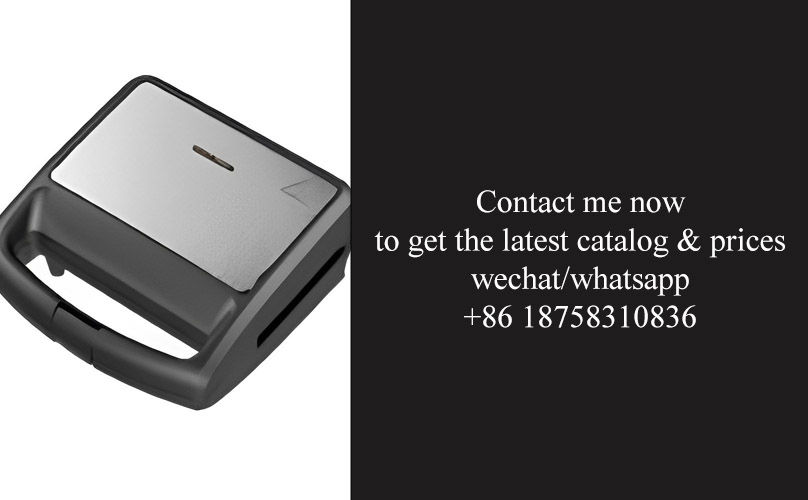
In a world where efficiency and safety are paramount in the commercial kitchen environment, the presence of ETL (Electrical Testing Laboratories) listed commercial units has become a hallmark of quality and reliability. As the market for kitchen appliances continues to evolve, understanding the significance of ETL certifications and their impact on both consumer trust and market competitiveness is crucial. This article delves into the success stories of businesses that have embraced ETL listed commercial units, explores the role of technology in advancing these standards, and offers insights on how to select the right appliances for your business. Ultimately, it concludes with a vision of a brighter, more secure, and technologically advanced kitchen appliance market, powered by ETL certified units.
The kitchen appliance industry has seen a significant transformation over the years, with a notable surge in the popularity of ETL listed commercial units. These units, certified by the Electrical Testing Laboratories (ETL), have become a staple in professional kitchens, from bustling restaurants to busy cafes. The rise of ETL listed commercial units can be attributed to several factors, each contributing to their growing prominence in the market.
One key factor is the stringent safety standards that ETL certification brings. In an industry where safety is paramount, having appliances that meet or exceed these standards is not just a regulatory requirement but a competitive edge. ETL listed units are designed to withstand the rigorous demands of commercial use, ensuring that they can handle the heavy workload without compromising on safety.
Another driving force behind the rise of ETL listed commercial units is the increasing awareness of energy efficiency. Businesses are becoming more environmentally conscious and are looking for ways to reduce their carbon footprint. ETL certified appliances often come with energy-saving features that not only lower utility bills but also contribute to a greener planet.
Innovation in technology has also played a crucial role. Manufacturers are constantly pushing the boundaries of what kitchen appliances can do, and ETL listed units are at the forefront of these advancements. From smart ovens that can be controlled remotely to refrigerators with precise temperature control, these units offer a level of convenience and efficiency that was once unimaginable.
The demand for these units is further fueled by the trend towards healthier eating habits. As consumers seek out healthier options, restaurants and cafes are responding by investing in appliances that can prepare these dishes more effectively. ETL listed commercial units are often equipped with features that allow for precise cooking temperatures and times, ensuring that food is cooked to perfection without the risk of overcooking or undercooking.
The rise of food trucks and pop-up restaurants has also contributed to the popularity of ETL listed commercial units. These mobile kitchens require compact, durable, and versatile appliances that can be easily transported and set up. ETL certification gives these businesses peace of mind, knowing that their equipment is up to the task of handling the demands of a mobile kitchen.
Moreover, the integration of ETL listed commercial units into kitchen design has become a key trend. Modern kitchens are not just functional spaces but also aesthetic showcases. The sleek and modern design of many ETL certified appliances enhances the overall look of a kitchen, making them a desirable choice for chefs and restaurateurs alike.
The market for ETL listed commercial units is also benefiting from the globalization of the foodservice industry. As chains expand their presence across borders, they need to ensure that their equipment is compliant with local regulations and standards. ETL certification is recognized worldwide, making it an ideal choice for international brands looking to maintain consistency in their operations.
Furthermore, the rise of online marketplaces and e-commerce has made it easier for businesses to access a wide range of ETL listed commercial units. These platforms offer convenience and a vast selection, allowing buyers to compare prices, read reviews, and make informed decisions without leaving their homes.
Despite the growing popularity of ETL listed commercial units, challenges remain. One of the main hurdles is the cost. High-quality, ETL certified appliances can be more expensive than their non-certified counterparts, which can be a barrier for some businesses, especially startups or those with tight budgets. However, the long-term savings on energy and maintenance often outweigh the initial investment.
Additionally, the complexity of certification processes can be daunting for manufacturers. Ensuring that their products meet ETL standards requires a considerable amount of time, resources, and expertise. This can sometimes slow down the introduction of new products to the market.
In conclusion, the rise of ETL listed commercial units in the kitchen appliance industry is a testament to the evolving needs and expectations of the market. As safety, efficiency, and innovation continue to be at the forefront of consumer and business demands, it’s clear that ETL listed units will continue to play a significant role in shaping the future of commercial kitchens worldwide.

In today’s fast-paced kitchen appliance industry, the term “ETL listed commercial units” has become a pivotal factor for businesses looking to elevate their kitchen operations. But what exactly are these ETL listed units, and why do they hold such significance?
ETL listed commercial units refer to kitchen appliances that have undergone rigorous testing and certification by ETL (Electrical Testing Laboratories), a respected third-party safety organization. This certification ensures that these appliances meet or exceed stringent safety standards, providing peace of mind to both consumers and businesses.
The process of becoming ETL listed involves comprehensive testing that covers electrical, mechanical, and fire safety aspects. Appliances that pass these tests are granted the ETL mark, a seal of approval that signifies compliance with recognized international and national standards. This certification process is not only about safety but also about reliability and performance.
For businesses in the foodservice industry, choosing ETL listed commercial units is a strategic move. These appliances are designed to withstand the rigors of commercial use, offering durability and longevity that consumer-grade appliances often lack. This durability translates to lower maintenance costs and a more cost-effective operation in the long run.
Moreover, ETL listed commercial units are equipped with features that cater to the specific needs of commercial kitchens. For instance, they may have larger capacities, more robust construction, and advanced technology that allows for precise temperature control and efficient operation. These units are not just built to last; they are also built to perform optimally in high-traffic environments.
In the eyes of consumers, the ETL listing serves as a trust signal. When they see the ETL mark on a kitchen appliance, they are more likely to perceive the product as safe, reliable, and high-quality. This perception is crucial, especially in the foodservice sector where health and safety are paramount.
The ETL listing also matters because it often complies with various local and international codes and regulations. For businesses operating across multiple locations or looking to expand internationally, having ETL listed appliances ensures that they are compliant with all relevant standards, simplifying the certification process for new markets.
Additionally, ETL listed commercial units are often more energy-efficient than their non-certified counterparts. This efficiency not only reduces operational costs but also contributes to a greener, more sustainable kitchen environment. Businesses that prioritize environmental responsibility find ETL listed appliances to be a valuable asset in their sustainability efforts.
Beyond safety and efficiency, ETL listed appliances often come with a wealth of resources and support. Manufacturers and suppliers of ETL listed units typically offer detailed documentation, including installation guides and maintenance tips, to ensure that businesses can maximize the lifespan and performance of their appliances.
In the competitive landscape of the kitchen appliance industry, having an ETL listed unit can also be a marketing advantage. Businesses can use the ETL mark as a selling point, highlighting their commitment to quality and safety. This can be particularly beneficial in tender processes, where clients may specify the need for ETL listed appliances.
The rise of ETL listed commercial units is also a testament to the evolving standards within the industry. As technology advances, so do the expectations for safety and performance. ETL listed appliances are at the forefront of these advancements, offering cutting-edge features and design that push the boundaries of what is possible in commercial kitchens.
In conclusion, ETL listed commercial units are not just kitchen appliances; they are a symbol of quality, safety, and reliability. They are designed to meet the demands of the modern commercial kitchen, offering businesses the assurance that their operations are in line with the highest standards. Whether it’s for consumer trust, regulatory compliance, or operational efficiency, ETL listed units are a valuable addition to any kitchen.
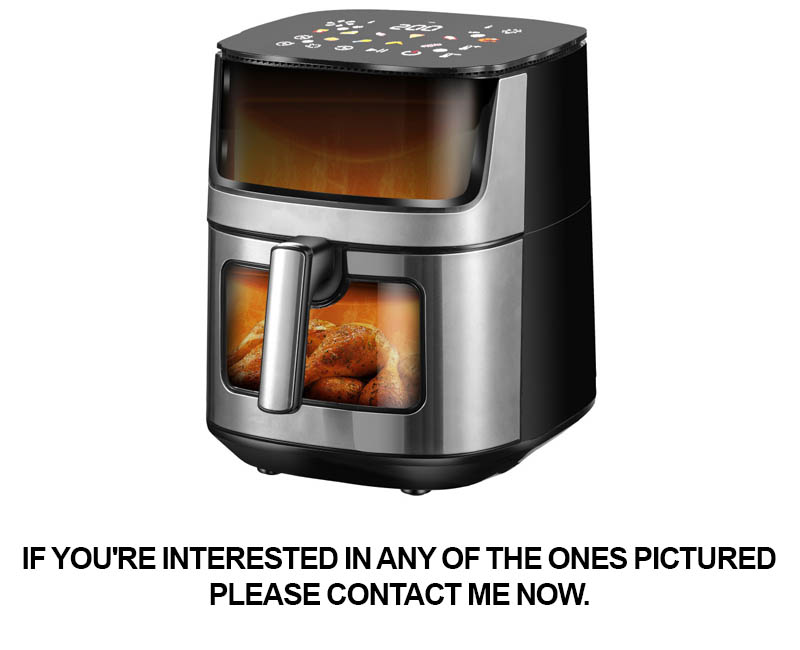
In the ever-evolving landscape of kitchen appliances, ETL listed commercial units have become a beacon of innovation and reliability. These appliances are not just tools for the trade; they are the heart of modern commercial kitchens, driving efficiency and quality in foodservice operations. Let’s delve into some of the latest innovations that have made ETL listed commercial kitchen appliances a game-changer.
Smart Technology IntegrationModern ETL listed commercial appliances are increasingly equipped with smart technology. From intuitive touchscreens to remote monitoring capabilities, these innovations allow for precise control and automation. Kitchens can now operate with minimal human intervention, ensuring consistent performance and reducing the risk of human error.
Energy EfficiencyEnergy consumption is a major concern for any commercial kitchen. ETL listed appliances are at the forefront of energy-saving technology. With features like programmable timers, eco-friendly modes, and energy-efficient motors, these units help reduce utility bills and minimize the environmental impact.
Enhanced DurabilityThe demands of a commercial kitchen are rigorous, and appliances must withstand constant use. Innovations in materials and construction have led to more durable ETL listed units. Stainless steel is the go-to material for its resistance to corrosion and heat, while advanced welding techniques ensure that appliances can endure the toughest conditions.
Customization and Modular DesignNo two commercial kitchens are exactly the same, and ETL listed appliances are now designed with this in mind. Modular units can be easily reconfigured to fit various kitchen layouts, and some appliances offer a range of customization options, such as different sizes and configurations, to meet specific operational needs.
Advanced Cooking TechnologiesCooking technology has seen significant advancements, with ETL listed appliances leading the way. Features like convection ovens, which circulate hot air for even cooking, and induction cooktops, which provide precise heat control, are becoming standard. These technologies not only improve the quality of food but also reduce cooking times.
Safety FeaturesSafety is paramount in commercial kitchens, and ETL listed appliances come with a host of safety features. Auto shut-off functions, childproof locks, and temperature control systems are just a few examples of how these units are designed to prevent accidents and protect both staff and customers.
Hygiene and CleanabilityIn the foodservice industry, cleanliness is not just a best practice; it’s a legal requirement. ETL listed commercial appliances are designed with hygiene in mind. Easy-to-clean surfaces, seamless joints, and removable parts make maintenance a breeze, reducing the risk of cross-contamination and ensuring compliance with health codes.
Connectivity and Data AnalyticsThe rise of the Internet of Things (IoT) has also influenced kitchen appliance design. ETL listed units can now connect to a network, allowing for real-time data collection and analysis. This data can be used to optimize kitchen operations, predict maintenance needs, and even improve menu planning based on usage patterns.
User-Friendly DesignThe design of ETL listed commercial appliances has become more user-friendly, with ergonomic handles, intuitive interfaces, and user guides that make training staff easier. These thoughtful design choices enhance productivity and reduce the learning curve for new kitchen staff.
Eco-Friendly MaterialsAs the world becomes more conscious of sustainability, ETL listed appliances are incorporating eco-friendly materials. Recycled metals, biodegradable components, and sustainable packaging are just a few examples of how these units are contributing to a greener kitchen environment.
In conclusion, the innovations in ETL listed commercial kitchen appliances reflect a commitment to efficiency, safety, and sustainability. These advancements are not just making commercial kitchens more productive; they are also setting new standards for the entire industry. Whether it’s through smart technology, energy-saving features, or improved safety measures, ETL listed appliances are the future of commercial kitchen excellence.
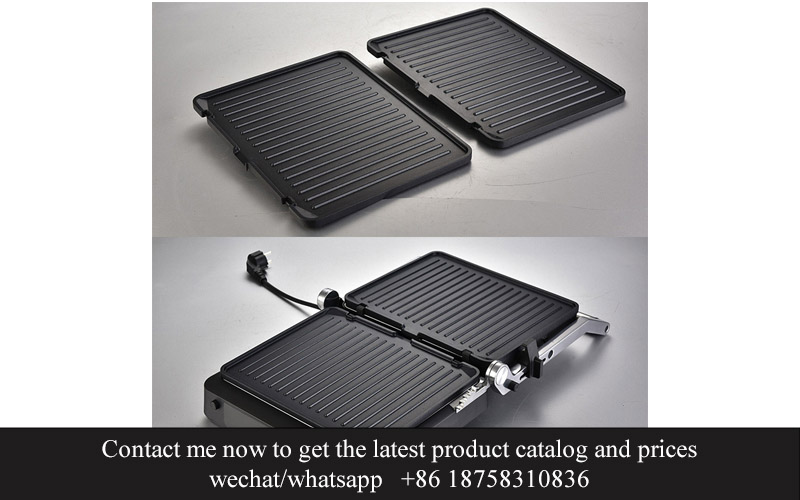
In recent years, the market for ETL certified appliances has experienced a significant surge in demand. This trend reflects a broader shift towards consumer awareness and safety standards in various industries, including the kitchen appliance sector. The following insights delve into the factors driving this growth and the implications it holds for both manufacturers and consumers.
Appliance Safety and ComplianceThe ETL (Electrical Testing Laboratories) certification is a mark of safety and compliance that has become increasingly important for consumers. With the rise in health and safety concerns, ETL certification ensures that appliances meet stringent safety standards, providing peace of mind to users. As more consumers prioritize safety over cost, the demand for ETL certified appliances has naturally increased.
Technological AdvancementsTechnological advancements have not only made appliances more efficient but also more complex. As a result, the need for rigorous testing and certification has become more critical. ETL certified appliances often incorporate the latest technology, such as smart features and energy-saving innovations, which are in high demand among tech-savvy consumers.
Sustainability and Energy EfficiencySustainability has become a key concern for many consumers and businesses alike. ETL certified appliances are typically evaluated for their energy efficiency, helping users reduce their carbon footprint and lower utility bills. The growing market demand for eco-friendly products has pushed manufacturers to develop more sustainable appliances that also carry the ETL seal of approval.
Global Market ExpansionAs the global market expands, so does the demand for standardized products. ETL certification is recognized internationally, making it easier for manufacturers to export their appliances to new markets. This global recognition has spurred demand, as companies seek to meet the diverse needs of consumers worldwide.
Health and WellnessThe health and wellness sector has seen a significant boom, with more people focusing on clean living and healthy cooking. ETL certified appliances that promote food safety and hygiene, such as commercial dishwashers and refrigerators, are becoming more popular. Consumers are willing to invest in these products to ensure their health and the quality of their food.
Retailer and Distributor PreferencesRetailers and distributors are also driving the demand for ETL certified appliances. They understand that these products can attract more customers due to their reputation for safety and quality. By carrying ETL certified appliances, retailers can differentiate their brands and appeal to a broader customer base.
Regulatory ChangesRegulatory changes in various countries have led to stricter appliance standards, which in turn have increased the demand for ETL certification. Governments are pushing for more stringent safety regulations to protect consumers, which has created a fertile ground for ETL certified appliances to flourish.
Economic FactorsEconomic growth, particularly in emerging markets, has contributed to the rise in demand for ETL certified appliances. As people’s incomes rise, they are more likely to invest in quality products that offer long-term benefits, such as ETL certified appliances that are durable and reliable.
Consumer Trust and CredibilityThe ETL mark of certification is a symbol of trust and credibility. Consumers recognize the value of this certification and are more likely to purchase appliances that carry it. This trust is a powerful driver of demand, as it reduces the perceived risk associated with purchasing untested or uncertified products.
In conclusion, the growing demand for ETL certified appliances is a multifaceted trend influenced by safety, technology, sustainability, global expansion, and consumer preferences. As these factors continue to evolve, it’s likely that the market for ETL certified appliances will only grow stronger, offering consumers a wider range of high-quality, safe, and efficient products to choose from.
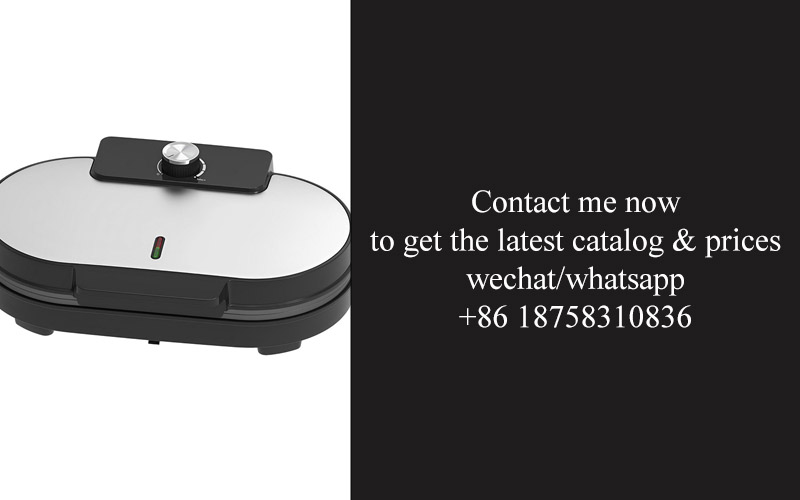
The ETL listing, a mark of excellence and safety, has become a significant benchmark in the kitchen appliance industry. This certification doesn’t just signify compliance with safety standards; it has a profound impact on consumer trust and market competitiveness. Let’s delve into how ETL listings shape these aspects.
Consumer Trust: The Pillar of ETL ListingsWhen consumers see the ETL logo on a kitchen appliance, it’s like a seal of approval. The Environmental Testing Laboratory (ETL) certification is rigorous, ensuring that the product meets stringent safety and performance criteria. This trust is built on the foundation of rigorous testing, which includes electrical, thermal, fire, and mechanical safety checks. Knowing that a product has passed these tests reassures consumers that they’re investing in a reliable and safe appliance.
Certification as a Quality IndicatorThe ETL listing serves as a quality indicator in the marketplace. Consumers are increasingly looking for products that not only perform well but also adhere to international safety standards. This demand is driven by health and safety concerns, as well as the desire for long-lasting, durable appliances. The ETL certification stands out as a beacon of quality, making it easier for consumers to differentiate between high-quality and subpar products.
Market Competitiveness: A Competitive EdgeIn a crowded marketplace, the ETL listing can be a game-changer. It provides manufacturers with a competitive edge by setting their products apart from the competition. Retailers often prefer to stock products with ETL certifications because they know these items are more likely to meet customer expectations. This preference can lead to increased sales and market share for brands that invest in ETL listings.
Consumer Confidence Boosts SalesWhen consumers feel confident in a product’s safety and quality, they are more likely to purchase it. The ETL listing can be a deciding factor in the buying process, especially for expensive or high-risk appliances. This boost in sales can lead to better market penetration and brand recognition, which are crucial for long-term success.
Reducing Liability and Legal ConcernsFor manufacturers, the ETL listing is a shield against potential legal issues. By ensuring that their products meet or exceed safety standards, manufacturers can mitigate the risk of product liability claims. This peace of mind allows businesses to focus on innovation and growth rather than dealing with costly legal battles.
Global Reach and Export OpportunitiesFor companies looking to expand into international markets, the ETL certification is a key asset. Many countries recognize the ETL mark, making it easier for manufacturers to export their products. This recognition can open doors to new markets and customers who are familiar with and trust the ETL brand.
Brand Reputation and CredibilityThe ETL listing contributes to the overall brand reputation and credibility. Consumers are more likely to trust brands that are committed to safety and quality. This trust can translate into customer loyalty, repeat business, and a positive brand image. A strong brand reputation is invaluable in the competitive kitchen appliance market.
Industry Standards and Continuous ImprovementThe ETL certification process encourages manufacturers to adhere to industry standards and strive for continuous improvement. This focus on standards helps to drive innovation and ensures that products are at the forefront of technological advancements. By setting a high bar for safety and quality, ETL listings push the entire industry towards excellence.
ConclusionThe impact of ETL listings on consumer trust and market competitiveness is undeniable. This certification not only ensures that kitchen appliances meet stringent safety standards but also builds trust with consumers, differentiates products in a competitive market, and provides manufacturers with a competitive edge. As the kitchen appliance industry continues to evolve, the ETL listing remains a crucial factor in shaping consumer confidence and market dynamics.

In the world of commercial kitchen appliances, ETL listed units have become a hallmark of quality and reliability. Let’s dive into a few case studies that showcase successful implementations of ETL listed commercial units across various industries.
One such success story is found in the bustling restaurant scene of New York City. A high-end steakhouse replaced its aging range ovens with ETL listed commercial units. The new appliances not only improved the efficiency of their cooking processes but also provided peace of mind due to their adherence to rigorous safety standards.
At a small-scale café in Los Angeles, the owner decided to upgrade their coffee equipment. By opting for ETL listed commercial units, the café not only enhanced the consistency and quality of their coffee but also saw a significant increase in customer satisfaction. The brand’s reputation for using top-tier appliances was bolstered, leading to word-of-mouth referrals.
A hotel chain in Chicago made the switch to ETL listed refrigeration units in their guest rooms and public areas. The units’ reliability was key in maintaining the temperature of perishable goods and ensuring the guests’ comfort. The brand’s commitment to quality service was visibly reflected in their well-maintained amenities, which helped them maintain a competitive edge.
A food service contractor in Dallas implemented ETL listed dishwashing machines in multiple facilities. The new machines not only reduced the labor time required for cleaning, but also decreased water and energy consumption. The contractor’s clients appreciated the sustainable practices, which added to the contractor’s reputation for environmentally friendly operations.
A fast-food franchise in Atlanta faced challenges with maintaining the quality of their frozen foods. After switching to ETL listed commercial freezers, the consistency of their menu items improved drastically. The freezers’ precision temperature control and durability led to reduced product waste and an increase in customer loyalty.
A bakery in San Francisco upgraded their proofers and ovens with ETL listed units. The new appliances enabled the bakery to maintain a high volume of consistent production without compromising the quality of their bread and pastries. The bakery’s ability to keep up with demand, thanks to the reliable appliances, solidified their position as a local favorite.
A health care facility in Phoenix replaced their medical-grade kitchen equipment with ETL listed units. The equipment’s adherence to stringent safety regulations was crucial in maintaining a sterile environment. The patients’ families and healthcare providers alike felt confident in the facility’s ability to provide quality meals, which positively impacted the overall reputation of the hospital.
In the bustling markets of Miami, a grocery store implemented ETL listed meat slicing machines. The machines’ accuracy and hygiene ensured that the sliced meats were not only of high quality but also met the store’s health and safety standards. This investment in top-notch equipment was reflected in the store’s brand, which gained a reputation for offering the best quality meats.
A sports facility in Houston upgraded their kitchen appliances with ETL listed models. The units’ performance was a game-changer, allowing for efficient and consistent preparation of meals for the athletes. The positive impact on the athletes’ performance and the facility’s ability to handle high demand at events made the switch to ETL listed units a wise investment.
In the realm of event catering, a well-known catering company in Boston relied on ETL listed appliances to ensure that their large-scale events were a success. The consistency and dependability of these appliances helped maintain the high standards expected by their clients, such as corporate events and wedding celebrations.
Each of these case studies demonstrates the tangible benefits of using ETL listed commercial units. From restaurants and hotels to healthcare facilities and catering services, these implementations have led to improved operational efficiency, increased customer satisfaction, and a competitive edge in their respective markets. The ETL listing has become a symbol of trust and quality, making it an invaluable asset for any business in the commercial kitchen appliance industry.

In recent years, the landscape of commercial kitchen appliances has been transformed by the emergence of ETL listed units. As the demand for high-quality, reliable equipment grows, the future of these appliances looks promising. From smart technology integration to sustainable design, here’s a glimpse into what’s next for ETL listed commercial kitchen appliances.
The integration of smart technology is reshaping the commercial kitchen landscape. Appliances that once operated independently are now becoming part of a connected ecosystem. Imagine a refrigerator that not only keeps food fresh but also communicates with inventory management systems to optimize restocking. This level of connectivity not only streamlines operations but also ensures that businesses are always equipped with the right supplies.
Energy efficiency remains a cornerstone in the future of ETL listed appliances. As environmental concerns continue to rise, manufacturers are focusing on creating products that consume less energy. This shift is not only beneficial for the planet but also for businesses looking to reduce their utility bills. Expect to see appliances with advanced insulation, energy-saving modes, and even self-regulating systems that adapt to usage patterns.
Customization is becoming more prevalent in the commercial kitchen appliance market. ETL listed units are no longer one-size-fits-all solutions. Instead, they are being tailored to meet the specific needs of various industries and applications. From high-volume restaurants to bakeries and catering services, appliances are being designed with flexibility in mind, allowing for a perfect fit in any kitchen setting.
The rise of modular kitchen designs is influencing the future of ETL listed appliances. These systems are designed to be scalable and adaptable, allowing businesses to expand or reconfigure their kitchens as needed. Modular appliances, such as cooktops, ovens, and refrigeration units, can be easily swapped out or added to the existing setup, ensuring that kitchens remain efficient and up-to-date.
Safety is a top priority in the commercial kitchen appliance industry, and ETL listings play a crucial role in ensuring compliance. The future will see an even greater emphasis on safety features, including advanced fire suppression systems, anti-tip technology, and automated shut-off mechanisms. These innovations will not only protect kitchen staff and customers but also prevent costly downtime due to accidents.
Sustainability is becoming a driving force in the appliance industry. ETL listed commercial units are increasingly incorporating eco-friendly materials and manufacturing processes. From recycled steel in appliances to biodegradable packaging, the industry is moving towards a greener future. This shift is not just about reducing waste but also about creating products that can be responsibly disposed of at the end of their lifecycle.
The Internet of Things (IoT) is expected to play a significant role in the future of ETL listed commercial kitchen appliances. With IoT, appliances can collect and analyze data to provide insights into performance, maintenance needs, and energy consumption. This data-driven approach will help businesses make informed decisions, leading to increased efficiency and cost savings.
As the world becomes more health-conscious, there’s a growing trend towards healthier cooking methods. ETL listed appliances are likely to see advancements in technologies that promote healthier cooking, such as induction cooktops that reduce smoke and healthier cooking modes on ovens. These innovations will cater to the demand for healthier food options in commercial kitchens.
The future of ETL listed commercial kitchen appliances also involves a focus on ease of use. Modern kitchens are fast-paced environments, and appliances need to keep up. Expect to see intuitive interfaces, voice control, and even gesture recognition becoming standard features. These advancements will help kitchen staff work more efficiently and reduce the risk of accidents.
In conclusion, the future of ETL listed commercial kitchen appliances is bright. With a focus on smart technology, energy efficiency, customization, safety, sustainability, and ease of use, these appliances are poised to revolutionize the way we think about commercial kitchen equipment. As the industry continues to evolve, businesses can look forward to a future where their kitchens are not just efficient but also forward-thinking and sustainable.
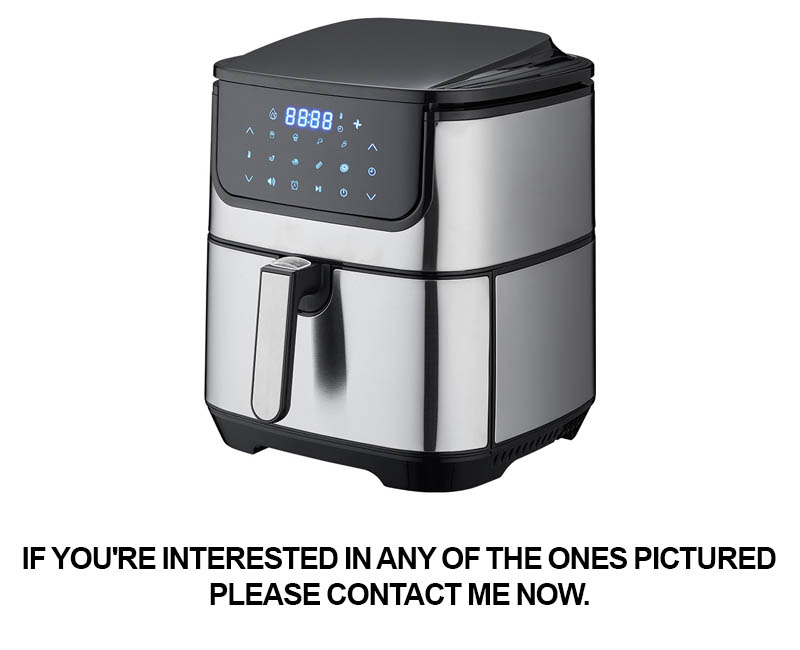
When it comes to selecting the right ETL listed commercial unit for your business, there are several key factors to consider that can make the process smoother and more effective. Understanding these elements is crucial to ensuring that the appliance you choose aligns with your operational needs, safety standards, and customer expectations.
Consider the Specific Needs of Your EstablishmentThe first step in choosing the appropriate ETL listed commercial unit is to assess the specific needs of your business. This includes evaluating the size of your kitchen, the types of dishes you prepare, and the volume of food service. For instance, a bustling restaurant with a diverse menu will require commercial units that can handle high-capacity cooking, while a smaller café might need units that are more versatile and energy-efficient.
Look for Energy Efficiency RatingsEnergy efficiency is not just a concern for the environment; it’s also a significant factor in cost savings. ETL listed commercial units often come with energy efficiency ratings that can help you determine how much they will contribute to your utility bills. Units with higher efficiency ratings can reduce your operational costs over time and may even qualify you for government incentives or rebates.
Safety Features Are Non-NegotiableIn the commercial kitchen environment, safety is paramount. ETL certification ensures that the appliance meets stringent safety standards, but it’s also important to look for additional features like auto shut-off functions, temperature controls, and childproofing. These features can prevent accidents and potential liabilities, making them a must-have for any business.
Brand Reputation and Customer ReviewsThe reputation of the appliance brand can offer insights into the reliability and quality of the product. Look for brands that have a history of producing durable and efficient commercial kitchen equipment. Additionally, customer reviews can provide real-world feedback on the performance and longevity of the units you’re considering.
Check for Compatibility and Integration OptionsIn today’s kitchen, compatibility with other equipment is key. Whether you’re integrating new appliances into an existing kitchen setup or looking to expand your capabilities, ensure that the ETL listed commercial unit can connect with your current systems. Look for features like digital interfaces, compatibility with various types of cookware, and the ability to be controlled remotely.
Consider the Maintenance and ServiceNo commercial kitchen appliance lasts forever, and regular maintenance is essential to keep it running smoothly. Check the manufacturer’s warranty and the availability of parts and service for the units you’re considering. A longer warranty period and easy access to parts can mean the difference between a minor inconvenience and a costly downtime.
Plan for Future Upgrades and ScalabilityAs your business grows, your kitchen needs may change. Choose an ETL listed commercial unit that can adapt to your evolving requirements. Look for appliances that can handle increased capacity or that offer modular components that can be added or replaced as needed.
Evaluate the Cost of OwnershipThe initial purchase price is just one aspect of the cost of ownership. Consider the total cost of the appliance over its lifetime, including energy costs, maintenance, and potential repairs. Sometimes, a higher upfront cost can lead to significant savings in the long run due to lower operating costs or higher efficiency.
Don’t Forget About the AestheticsWhile functionality is the most critical aspect, the appearance of your commercial kitchen equipment can also impact your business. Modern, sleek designs not only improve the overall look of your kitchen but can also contribute to a more pleasant working environment for your staff and a better dining experience for your customers.
Research Local Regulations and CodesDifferent regions have varying regulations and codes that dictate the type of commercial kitchen equipment that can be used. Ensure that the ETL listed commercial unit you choose complies with all local health and safety standards. This can prevent legal issues and ensure that your kitchen remains compliant throughout its operation.
In conclusion, selecting the right ETL listed commercial unit requires a thorough understanding of your business needs, careful consideration of safety and efficiency features, and a forward-thinking approach to scalability and maintenance. By taking these factors into account, you can make a well-informed decision that will serve your business for years to come.
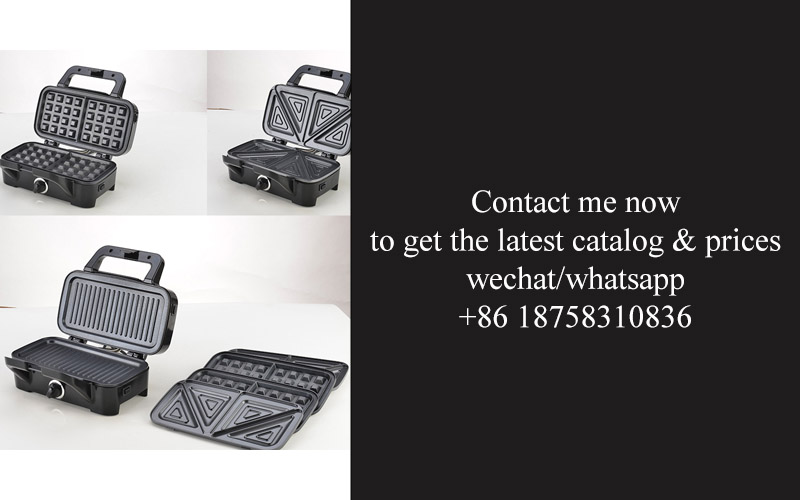
In the ever-evolving landscape of kitchen appliances, technology plays a pivotal role in shaping the standards and ensuring the reliability of ETL (Electrical Testing Laboratories) listed commercial units. From smart sensors to automated testing processes, here’s how technology is driving advancements in ETL standards.
The integration of IoT (Internet of Things) technology in kitchen appliances has revolutionized the way ETL listings are achieved. Smart appliances can now communicate with each other and with the user, providing real-time data that helps in monitoring performance and safety. This interconnectedness allows for more precise testing and certification, ensuring that appliances meet stringent ETL requirements.
Advanced testing equipment, powered by cutting-edge technology, has significantly improved the accuracy and efficiency of ETL certification processes. High-speed data analysis tools can process vast amounts of information in seconds, enabling manufacturers to identify and rectify potential issues before they become significant problems. This technology-driven approach to testing not only saves time but also enhances the quality of the end product.
ETL standards are continually evolving, and technology is at the forefront of this progression. Machine learning algorithms are being employed to predict trends and anticipate future safety concerns. By analyzing historical data and current market demands, these algorithms can suggest new testing protocols and safety features that will become standard in the future.
The rise of 3D printing has also impacted ETL standards, allowing for the creation of prototypes and custom components that can be tested for compliance. This technology enables manufacturers to iterate and refine their designs quickly, ensuring that the final product meets ETL criteria without compromising on design or functionality.
Energy efficiency is a key factor in ETL certification, and technology is making significant strides in this area. Smart appliances equipped with energy-saving features can now be tested using sophisticated software that simulates real-world usage. This ensures that the energy-saving claims made by manufacturers are backed by data and meet the stringent ETL energy efficiency standards.
The use of blockchain technology in the certification process adds a layer of transparency that was previously unattainable. By recording every step of the certification process on a blockchain, manufacturers and consumers can have confidence in the authenticity and integrity of the ETL listing. This technology also helps in preventing counterfeiting and ensures that only genuine, compliant products are available in the market.
As ETL standards become more rigorous, technology is also playing a role in educating end-users about the importance of these certifications. Through interactive interfaces and educational content, appliances can inform users about their safety features and how to maintain them. This not only enhances consumer trust but also encourages the adoption of safer, more efficient appliances.
In the realm of service and maintenance, technology is enabling the development of predictive maintenance tools. These tools use data analytics to predict when an appliance might require service, allowing for proactive maintenance that can prevent downtime and extend the life of the equipment. This is particularly beneficial for commercial kitchens where uninterrupted operation is crucial.
The role of technology in advancing ETL standards is multifaceted, encompassing everything from the design and testing of appliances to the communication of safety features to consumers. As technology continues to evolve, we can expect to see even more innovative solutions that will raise the bar for kitchen appliance safety and efficiency.
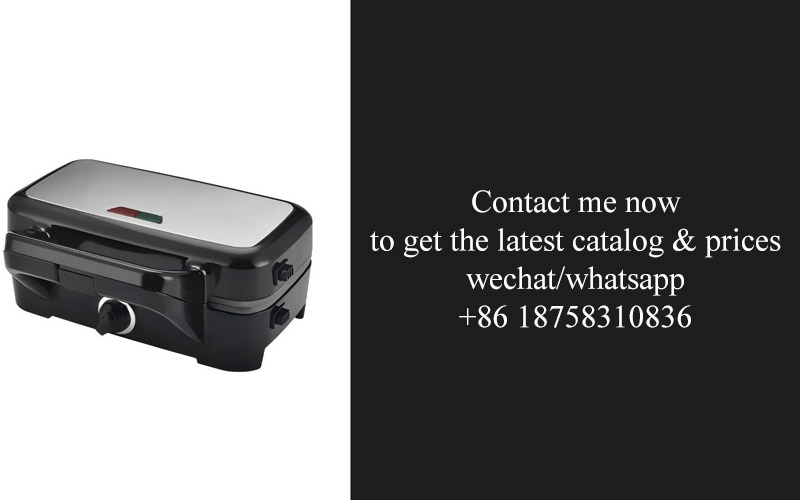
As the kitchen appliance market continues to evolve, embracing ETL certified commercial units has become a pivotal choice for businesses aiming to thrive in a competitive landscape. These certifications aren’t just about meeting standards; they’re about signaling a commitment to quality, safety, and innovation. Here’s why these units are shaping the future of the kitchen appliance market.
ETL certifications are more than just a label on a product. They represent a rigorous process of testing and inspection that ensures each appliance meets stringent safety and performance criteria. This level of scrutiny isn’t just about compliance; it’s about building trust with consumers who are increasingly aware of the importance of safety in their homes and workplaces.
The rise of smart kitchens has been a game-changer for the appliance industry. ETL certified commercial units are at the forefront of this revolution, integrating cutting-edge technology with tried-and-tested safety standards. From smart refrigeration systems that optimize energy use to cooktops that adjust to cooking temperatures, these appliances are not just efficient but also future-proof.
In a market where differentiation is key, ETL certifications can set a business apart. They provide a clear advantage in terms of credibility and consumer appeal. When customers see the ETL mark, they know they’re purchasing a product that has been thoroughly evaluated for safety and performance.
The demand for energy-efficient appliances has surged in recent years, and ETL certified units are leading the charge. With environmental concerns at the forefront of many consumers’ minds, these appliances not only help businesses meet sustainability goals but also offer a competitive edge by appealing to eco-conscious buyers.
The global kitchen appliance market is becoming more diverse, with an increasing number of players from various regions. ETL certifications play a crucial role in this globalization, providing a common language for safety and quality standards across borders. This international recognition can open doors for businesses looking to expand their market reach.
Case studies show that businesses that invest in ETL certified commercial units often see a rapid return on investment. Improved safety records, reduced downtime due to appliance failures, and increased customer satisfaction are just a few of the benefits. These advantages can lead to better operational efficiency and, ultimately, higher profits.
The integration of IoT (Internet of Things) technology into kitchen appliances is transforming how we think about commercial kitchen operations. ETL certified units are at the forefront of this integration, offering real-time monitoring and predictive maintenance capabilities. This not only enhances safety but also optimizes appliance performance and extends their lifespan.
As the kitchen appliance market continues to grow, so does the importance of ETL certifications. They are not just a regulatory requirement but a strategic asset for businesses. By choosing ETL certified units, businesses are not only ensuring compliance but also positioning themselves as leaders in the industry.
In conclusion, the kitchen appliance market is poised for a bright future, driven by the adoption of ETL certified commercial units. These appliances are not just tools for cooking and food preparation; they are symbols of quality, safety, and innovation. As businesses embrace these units, they are not just complying with standards but setting the stage for a new era of kitchen appliance excellence.